
Hong Yu
Professor, Ted Rogers School of Retail Management, Toronto Metropolitan University
Dr. Hong Yu is a Professor of Retail Management at the Ted Rogers School of Management, Toronto Metropolitan University. With expertise in engineering, design, and business, her research focuses on management strategies for product, service, and customer experience transformations. Currently, she studies the shopping experiences of older customers to improve product innovation, inclusive retail environments, and service design. Dr. Yu has taught MBA and Master of Science in Management (MScM) programs, supervised over 70 PhD, MScM, and MBA students, completed 18 funded research projects, and published an open etextbook and over 50 peer-reviewed papers, and won awards for her research and educational programs in Europe and the U.S.
Less ![]()
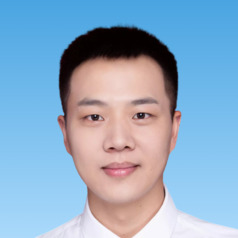
Hongyun Zheng
Associate Professor, College of Economics and Management, Huazhong Agricultural University
I am currently an Associate Professor at the College of Economics and Management, Huazhong Agricultural University, China. I obtained Ph.D degree in Agricultural Economics through the joint educational program between Huazhong Agricultural University (China) and Lincoln University (New Zealand). I works in the fields of Agricultural Economics and Development Economics, with a focus on topics such as agricultural productivity and efficiency, information technology adoption, rural welfare, and farmer subjective well-being.
Less ![]()
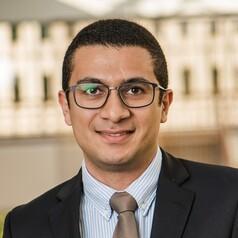
Hooman Hidaji
Assistant Professor of Business Technology Management, University of Calgary
I am an assistant professor of Business Technology Management (BTM) at Haskayne School of Business, University of Calgary. I joined Haskayne in 2017 after graduating with Ph.D. in Business, Operations and Information Systems from University of Alberta. My current research interests include economics of information systems, data privacy and protection regulation, data portability, platforms, online information sharing, information and communication technology supply chains. I have been awarded several grants, including Social Sciences and Humanities Research Council of Canada (SSHRC) Insight Development Grant and Insight Grant. My publications appear in prestigious journals such as Information Systems Research, MIS Quarterly, and Production and Operations Management; and have been featured in London School of Economics Business Review and The Globe and Mail.
Less ![]()

Hoorsana Damavandi
Assistant Professor of Marketing, University of Tennessee
Dr. Hoorsana Damavandi is an Assistant Professor of Marketing at University of Tennessee's Haslam College of Business. She has a Ph.D. in Marketing from Ivey Business School, Western University, specializing in quantitative marketing strategy.
Hoorsana is primarily interested in phenomenon-driven research that is inspired by and speaks to the problems and opportunities that interest business managers. Broadly, her work centers around understanding how firms deal with adversity in their upstream and downstream relationships. She works on the substantive areas related to product quality failures and price increases, and uses econometrics, spatial and network analysis, machine learning, and experiments in her research.
Less ![]()
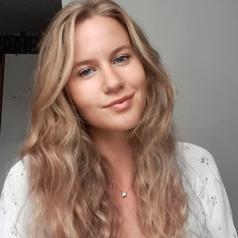
Hope Jones
Research Assistant at the National Centre for Population Health and Wellbeing Research, Swansea University
I am a research assistant for the National Centre for Population Health and Wellbeing Research (NCPHWR) and lead on the Born in Wales research project. My research interests consist of family health and wellbeing looking at what affects the future outcomes for children and families. I am an early-career researcher and have several publications in maternal and child health and wellbeing and contribute to various projects in public health.
Less ![]()
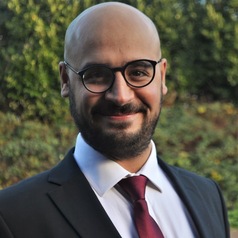
Horia Maior
Assistant Professor, Computer Science, University of Nottingham
Horia A. Maior is an Assistant Professor and Multidisciplinary Researcher in the Mixed Reality Lab (https://www.nottingham.ac.uk/research/groups/mixedrealitylab/), Horizon Digital Economy Research Institute (https://www.horizon.ac.uk/), Cyber-physical Health and Assistive Robotics Technologies Research Group (https://www.chartresearch.org/) and Brain and Physiological Data Group (https://brain-data-uon.gitlab.io/) in the School of Computer Science at the University of Nottingham. His research is focused on understanding challenges and opportunities when comes to responsible research and innovation in Brain Computer Interfaces, Human Computer Interaction, Human Robot Interaction and Trustworthy and Responsible AI.
Horia is involved in the wider research and innovation ecosystem and acts as a trustee at the Foundation for Science and Technology (https://www.foundation.org.uk/), and part of outreach and public engagement initiatives with the local community and acts as a trustee at Inspire Foundation Nottingham (https://www.inspirefoundation.org.uk/)
Less ![]()
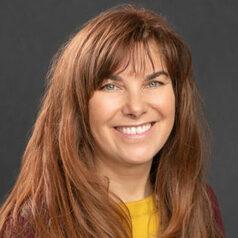
Hortensia Soto
Professor of Mathematics, Colorado State University
Hortensia Soto was born in Belén del Refujio, Jalisco, Mexico and raised on a farm in western Nebraska. She is the second of nine children and although her parents only have a third-grade education, all her siblings have a college education.
Hortensia has published in various areas of mathematics education including assessment, mathematical preparation of elementary teachers, outreach efforts for high school girls, and especially in the area of teaching and learning of undergraduate mathematics. Her current research efforts are dedicated to investigating the teaching and learning complex analysis, where she adopts an embodied cognition perspective and is part of the Embodied Mathematics Imagination and Cognition community. Since her days as an undergraduate student, Hortensia has mentored young women and promoted mathematics via summer outreach programs.
Hortensia is a Professor of Mathematics at Colorado State University and the President of the Mathematical Association of America.
Less ![]()
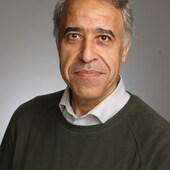
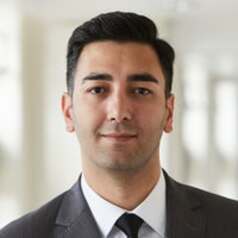
Hossein Jahanshahloo
Assistant Professor in Finance, Cardiff University
Hossein joined the Accounting & Finance Section in January 2019. He received his MSc and PhD in Finance from Leeds University Business and his BSc in Computer Software Engineering. Prior to pursuing his MSc, he worked in financial industry for 5 years . Hossein's research interests include Cryptocurrencies and market microstructure. Hossein is the creator and founder of Cardiff University Bitcoin Database (CUBiD).
Less ![]()
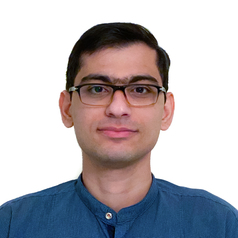
Hossein Saberi
Research Associate in Renewable Energy Engineering, UNSW Sydney
Hossein is a Research Associate at the School of Photovoltaic and Renewable Energy Engineering (SPREE), UNSW.
He completed his PhD in smart energy systems, School of Electrical Engineering and Telecommunications, UNSW, Sydney in 2023, M.Sc in power systems and high voltage engineering, University of Tehran, Iran in 2015, and B.Sc in electrical engineering, Shahid Rajaee Teacher Training University, Tehran, Iran in 2013.
Hossein is currently collaborating on two major projects on the operation and control of domestic electric water heating systems: SolarShift (RACE for 2030) and Flexible demand trial (ARENA). His main research interests include big data analysis and developing data-driven solutions using machine learning techniques and mathematical optimisation theories for the planning, operation, and protection of smart energy systems.
Less ![]()
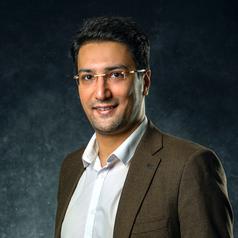
Hossein Zarei
Lecturer in Business Strategy, Coventry University
Dr. Hossein Zarei is Lecturer in Business Strategy at School of Strategy & Leadership, Coventry University. In 2014, he was one of the six candidates that were awarded by the European Union the prestigious Erasmus Mundus Joint Doctorate (EMJD) Fellowship for Industrial Management. He holds two PhDs, one in Management, Economics & Industrial Engineering from Politecnico di Milano (2018) and the other in Industrial Management from Universidad Politécnica de Madrid (2020). He is a Fellow of Higher Education Academy (FHEA), UK, and holds a Postgraduate Certificate in Academic Practice from Coventry University (2021).
Hossein conducts research at the intersection of humanitarian logistics and sustainable supply chain management where he addresses the question: "How can humanitarian supply chains be more socially and environmentally sustainable?". His research results have been published in top supply chain and business management outlets and have been highly cited by other researchers. He has been collaborating with prestigious humanitarian organizations such as International Committee of Red Cross (ICRC) as the project leader for several research and consultancy projects since 2015.
Less ![]()
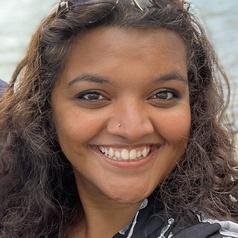
Houriiyah Tegally
Senior Data Analyst, Head of Data Science at Centre for Epidemic Response and Innovation (CERI), Stellenbosch University
I am a genomic epidemiology researcher and Head of Data Science at the Centre for Epidemic Response and Innovation (CERI) at Stellenbosch University in South Africa. I hold a PhD in Bioinformatics from UKZN, South Africa, a MSc in Applied Biosciences and Biotechnology from Imperial College London, and a BSc in Molecular Biology from Yale University. My expertise revolves around the use of phylodynamics in conjunction with epidemiological, geospatial and population-scale data to track infectious diseases. I co-lead the CLIMADE-Africa working group where I am reconstructing, responding to, and forecasting the transmission risks, patterns and outbreak potential of vector and waterborne pathogens on the continent, in the face of climate change and disasters, demographic expansion and increased human mobility.
Less ![]()
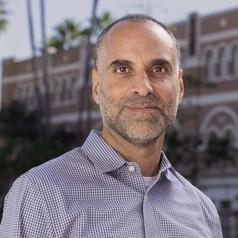
Hovig Tchalian
Assistant Professor of Entrepreneurship, University of Southern California
I'm part of the faculty at the USC Marshall School of Business, in the Lloyd Greif Center for Entrepreneurial studies.
I study how the social conversation around new technologies helps or hinders their adoption. For example, I study the century-long efforts of making electric vehicles market viable. I also study how perceptions of authenticity around specialty products like high-end coffee and whiskey impact their markets.
Less ![]()
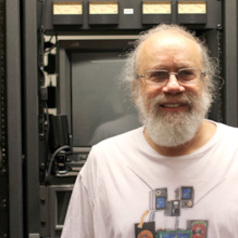
Howard Besser
Professor of Cinema Studies, New York University
Founding Director, Moving Image Archiving & Preservation MA Program; Professor Emeritus, UCLA School of Education & Information Studies
Less ![]()
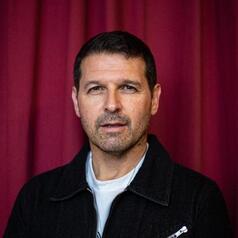
Howard Monk
Senior Teaching Fellow, Music Management, University of Southampton
Senior Teaching Fellow, University of Southampton
Founding partner, TheWRD
Founding Member/Drummer, Billy Mahonie
I work in Education, in the Music and Creative Entrepreneurship space. I write and speak about my experiences as a working class academic in the Creative Industries and as an independent musician/entrepreneur.
I have a degree in French from Middlesex, an MBA from Westminster Business School and a Post Graduate Certificate in Teaching and Learning from University of Sussex.
Seeing my previous students flying high is a great source of pride.
I am a proud father and husband. I support Rochdale AFC.
Less ![]()

Howard Nye
Associate Professor of Philosophy, University of Alberta
Howard Nye is an Associate Professor of Philosophy at the University of Alberta. He works primarily in the areas of practical ethics, normative ethics, and metaethics, and has related interests in political philosophy, the philosophy of mind, and decision theory.
One line of Howard’s current research concerns the ethics of collective action, including why individuals should contribute to projects that may do a great deal of good if enough others also contribute, and what contributions to potentially beneficial projects are most important to make. Much of his current research in this line investigates the desirability and feasibility of a just transition to a predominantly plant-based food system in Canada.
Another line of Howard's research investigates challenges to the common assumption that life is less of a morally important benefit to sentient beings who lack the intellectual abilities of typical human adults.
A third line of Howard's research investigates what it takes for an entity to have representations and goals in a sense that admits of genuine, underivative error and unfulfillment, with applications to the sentience and mental lives of various non-human animals, intellectually less able humans, and possible future artificial intelligence systems.
Less ![]()
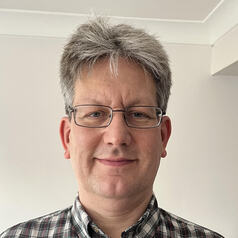
Howard Reed
Senior Research Fellow, Social Work, Education and Community Wellbeing, Northumbria University, Newcastle
I am Senior Research Fellow in Public Policy working as part of a team in SWECW examining the health case for basic income and a broader programme of policy development aimed at creating a new settlement of the same scale and sustainability as that of the Beveridge-inspired reforms of 1945. My particular focus lies in exploring the economic and health economic impacts of public policies. A key example of recent work is Treating Causes not Symptoms: Basic Income as a Public Health Measure, which presents findings on the health and health economic impacts of basic income schemes.
I am a leading specialist in microsimulation modelling of tax-benefit systems and other applied microeconomic analysis and am Director of Landman Economics. In 2008-09 I wrote the original version of the tax-benefit model used by the Institute for Public Policy Research and the Resolution Foundation, which (following further revisions) has evolved into the Landman Economics Tax-Transfer Model (TTM), one of the leading tax-benefit microsimulation models in the UK.
Before founding Landman Economics, I was Chief Economist and Director of Research at the Institute for Public Policy Research from 2004 and 2008. My first job after studying for an MSc in Economics at University College London was at the Institute for Fiscal Studies, where I had primary responsibility for the IFS’s tax-benefit model TAXBEN between 2000 and 2004.
Since founding Landman Economics in 2008 I have received over £2 million in funding from public and third sector bodies including the (Scottish Government, Welsh Government, Greater London Authority, Equality and Human Rights Commission, Northern Ireland Human Rights Commission, Joseph Rowntree Foundation, Action on Smoking and Health, Oxfam and many others).
In order to conduct research, I have formed a number of multidisciplinary teams and I have a clear record of success in collaboration with academics at a number of institutions including the Open University, University of Bristol and University of Southampton.
Less ![]()
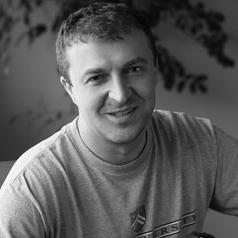
Hrvoje Tkalčić
Professor, Head of Geophysics, Director of Warramunga Array, Australian National University
I use seismology and mathematical geophysics tools to understand the internal workings of our planet. You can think of these tools together as of an internal telescope through which we image Earth's structure and dynamics.
Less ![]()

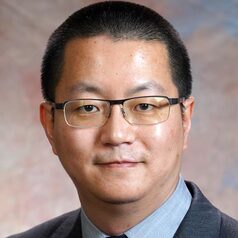
Huan Kuang
Assistant Professor of Finance, Bryant University
Dr. Huan Kuang is an Assistant Professor of Finance at Bryant University. He received his Ph.D. in Finance from the University of Massachusetts Amherst. His research explores various aspects of climate finance, including climate innovation, climate change risk disclosure, and the impact of climate change on asset prices.
Less ![]()
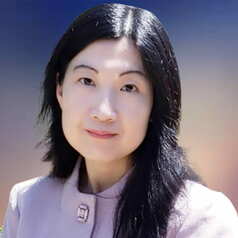
Huanhuan Joyce Chen
Assistant Professor of Molecular Engineering, University of Chicago Pritzker School of Molecular Engineering
Specialized in tissue engineering and stem cell biology, the Joyce Chen Lab applies technical advances (e.g. human pluripotent stem cell-based modeling, organotypic tissue engineering and single cell analysis) to pursue long-standing questions in cancer research, stem cell biology and regenerative medicine. Our current main focus is to understand how cancers initiate and progress using various stages of human cells derived from pluripotent or adult stem cells, and design strategies to diagnose, categorize and treat the diseases more effectively. Another line of our work is to directly model and study human tissues or diseases “in a dish”, by in vivo molecule-mediated humanized mouse models, ex vivo organotypic re-cellularization or in vitro microfabrication.
The Chen group’s research interest is to integrate stem cell-based disease modeling, regenerative technologies, and single cell analysis to study organ damage repair, regenerative medicine, cancer, and other genetic diseases.
Less ![]()

Huanyuan Zhang-Zheng
College Lecturer at Worcester College, and Postdoctoral Researcher at School of Geography and the Environment, University of Oxford
Dr. Huanyuan Zhang-Zheng is a Postdoctoral researcher with a profound interest in African forest ecology, carbon cycle modelling, and plant functional traits. Affiliated with both the University of Oxford and UC Berkeley, he is responsible for building the Global Ecosystem Monitoring (GEM) Forests carbon cycle database. Huanyuan is a member of the Ecosystems Lab and NGEE-Tropics lab. Huanyuan's primary research endeavours encompass the compilation of the GEM forests carbon cycle database, data-model comparisons of forests' gross primary productivity, and meta-analyses of forest productivity across a multitude of tropical sites. He is also the sole author of CRAN R package, ARTofR
Dr. Zhang-Zheng earned a BSc in Environmental Science from Sun Yat-sen University in China, and the University of Birmingham. He also holds an MRes in Ecosystem and Environmental Change (Distinction) from Imperial College London. In 2023, he was awarded DPhil in Geography and the Environment from the University of Oxford with a thesis entitled Gross primary production of West African tropical forests. He has been the recipient of the Environmental Change Institute small grants from the University of Oxford, the Tang scholarships awarded by the China Oxford Scholarship Fund, and the Henfrey scholarship on Chinese studies from St Catherine’s College, Oxford. Additionally, his research was funded by Xishuangbanna Tropical Botanical Garden Open Funding, and African-Oxford Catalyst Grant, awarded by African-Oxford Initiative.
Born on a tropical island (Nan'ao Island, China) and passionate about tropical ecosystems, he has travelled to and conducted research in Mexico, Colombia, Ghana, Malaysia and Yunan, China. He is also a PADI qualified Free Diver and Dive Master.
Less ![]()
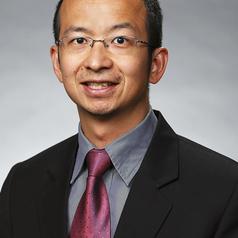
Hubert Pun
Professor, Ivey Business School, Western University
Dr. Hubert Pun is the PhD Program Director and an Associate Professor at the Ivey Business School at Western University. He received the Western Faculty Scholar Award for his research contribution to blockchain business application. This award "recognize[s] mid-career faculty members with an international presence in their discipline who are considered all-round scholars."
Hubert grew up in Hong Kong. He earned his undergraduate and Master’s degrees in engineering in Vancouver where he then worked for a few years. He became part of an expansion team at a Venezuelan start-up company which grew into Central/North America (e.g., Colombia, Mexico, Panama, and USA) during 2002-2005. His work at that time was helping firms to deploy secure computer networks.
Hubert completed his PhD in Operations Management and Decision Sciences at the Kelley School of Business (Indiana University) in 2010. He joined the Ivey Business School in 2010 and has taught in the HBA, MSc, MBA, EMBA and PhD programs. He was awarded with Ivey Dean’s Teaching Commendation Letters (top 10% Ivey faculty) and the University Students’ Council Teaching Honor Roll in 2016/2017. He also won the Research Merit Award (top 10% Ivey faculty) in 2019, 2020, 2021 and 2022. His research interests include co-opetition, counterfeiting product, and how blockchain can be used as an enterprise solution. He has published in Manufacturing & Service Operations Management (M&SOM), Production and Operations Management (POM), Journal of Operations Management (JOM), and other top tier journals. Currently, he is serving as a Senior Editor at Production and Operations Management (POM) and an Associate Editor at the International Journal of Production Research (IJPR).
Less ![]()
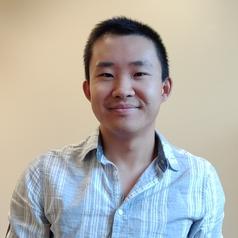
Huchen Liu
Assistant Professor of Political Science, University of Nebraska Omaha
Huchen Liu is an Assistant Professor of Political Science at the University of Nebraska Omaha. His researches American politics, with focuses on interest groups and national political institutions.
Less ![]()

Huda Syyed
PhD Candidate & Tutor, Charles Darwin University
Huda Syyed has worked in academia and the non-profit sector and hopes to actively contribute to research and development efforts in the future. Her current topic of research focuses on the practice of ‘Female Genital Cutting’ and explores the lack of data, political activism and understanding regarding it in Pakistan. Her main academic interests include gender, culture, and politicised religion. She is currently a PhD candidate and casual tutor at Charles Darwin University. She completed her undergraduate degree from University of Karachi and pursued a Master’s degree in International Relations at QueenMary University of London. In between, she completed a certificate course at The Graduate Institute Geneva. In the past, she has worked as a Research Assistant for academic projects and on issues of Gender-Based-Violence. She was visiting faculty lecturer at Bahria University and taught the course of “International Organisations”.
https://vc.bridgew.edu/jiws/vol24/iss1/18/
Twitter Handle: @hsyyed88 https://twitter.com/hsyyed88
Research Portal: https://researchers.cdu.edu.au/en/persons/huda-syyed
Less ![]()
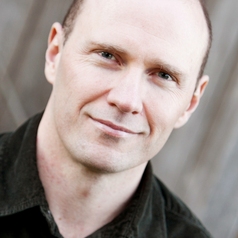
Hugh Breakey
Hugh Breakey is a Research Fellow at Griffith University’s Institute for Ethics, Governance and Law. His work stretches across the philosophical subdisciplines of political philosophy, normative ethics, moral psychology, governance studies and applied philosophy. He is the author of 'Intellectual Liberty: Natural Rights and Intellectual Property' (Ashgate) and the co-author (alongside Charles Sampford and Ramesh Thakur) of 'Enhancing Protection Capacity: Policy Guide to the Responsibility to Protect and the Protection of Civilians in Armed Conflicts'.
His works explore the ethical challenges arising in such diverse fields as peacekeeping, institutional governance, climate change, sustainable tourism, private property, medicine, and international law, published in journals including The Philosophical Quarterly, The Modern Law Review and Political Studies. He has taught philosophy and ethics at the University of Queensland, Queensland University of Technology and Bond University. Since 2013, Hugh has served as President of the Australian Association for Professional and Applied Ethics. He is currently working on two federally funded research projects, one on professionalization of the financial services industry, and the other on the integrity of the global climate regime.
Less ![]()
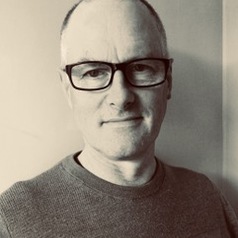
Hugh Campbell
Professor of Sociology, Gender Studies and Criminology, University of Otago
Hugh has a long relationship with both the University of Otago and the Centre for Sustainability. He was an undergraduate at the University in the 1980s, and then completed a Masters in Social Anthropology at the university in 1988. He then spent time at Lincoln University where an academic interest in rural sociology, agriculture and sustainability began to form. Following completion of his PhD in Rural Sociology at the Centre for Rural Social Research, Charles Sturt University, New South Wales, he returned to the University of Otago in 1994 and developed university courses on rural society in New Zealand and on the global politics of food. In 2000, he was appointed founding Director of the Centre for the Study of Agriculture, Food and Environment at the University of Otago – the centre that subsequently grew into the Centre for Sustainability.
During his career at Otago, Hugh has had leadership roles in many research projects funded by the Ministry of Science and Innovation (MSI). From 1995–2002, he was the Programme Leader of an MSI-funded programme, Greening Food: Social and Industry Dynamics. This programme examined the social and economic dimensions of developing sustainable agriculture in New Zealand. Specifically, the programme examined the development of organic production and Integrated Pest Management systems by food export organisations like Zespri and ENZA.
After 2003, Hugh co-led the social research team in the MSI-funded Agriculture Research Group on Sustainability (ARGOS) Programme. Working with the kiwifruit, dairy, and sheep/beef sectors, the ARGOS programme brought together 30 researchers from Otago and Lincoln Universities, and from the Agribusiness Group in Christchurch. It undertook a long-term study of social, economic and environmental dynamics on a group of over 100 farms and orchards in New Zealand. That project was extended through 2013–2018 as the NZ Sustainability Dashboard project.
From 2009–2014, Hugh was co-PI of the Marsden fund project Biological Economies: Making and Knowing New Rural Values. This project brought together researchers from across rural sociology and geography in New Zealand and resulted in the publication of two collections:
Biological Economies: Experimentation and the politics of agri-food frontiers (2016)
The New Biological Economy. How New Zealanders are creating value from the land (2018)
As a researcher, Hugh has published work on the social and economic dynamics of 'greening' food systems, the politics of sustainability under neoliberal governance, achieving sustainability via audits, food waste, transitions in agriculture and food systems in New Zealand, and theories of global food regimes.
In 2020, he published a book with Bloomsbury Academic –Farming Inside Invisible Worlds: Modernist Agriculture and its Consequences – on the agency of farms in the colonisation of New Zealand, the creation of modernist farming as the dominant for of land-use in New Zealand, and the many ways in which alternatives to modernist farming are emerging. The book is available on open access at www.bloomsburycollections.com
Less ![]()
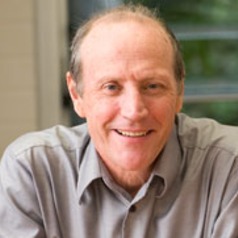
Hugh Craig
Professor of English, University of Newcastle
We have a Centre for Literary and Linguistic Computing at Newcastle, which I now direct. It was started by John Burrows, now Emeritus Prof, in 1989. We started with strictly literary topics, and that is still the heart of things, but language is such wonderfully rich data, in regular use, as well as in plays, poems and novels, that new stylistic problems constantly present themselves. What can the language we write tell us about our cognitive functioning, or about the life stages we might share with a wider population? How does language change over time, within an art form like drama, and outside the theatre? What's the interaction between personal styles and house styles for journalists?
Less ![]()
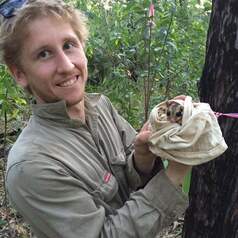
Hugh Davies
Research Associate, Charles Darwin University
My research focuses on the processes that are causing the widespread decline of native mammals across the tropical savannas of northern Australia, and novel approaches to land management that may be able to slow, and even reverse, their decline.
Less ![]()
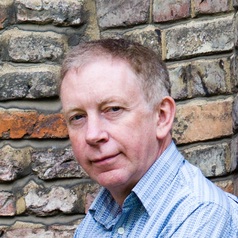
Hugh Hunt
Dr Hugh Hunt is a Reader in Cambridge University's Engineering Department and recipient of the Royal Academy of Engineering Rooke Award for the public promotion of engineering.
His research interests include railway noise and vibration, gyroscopes and boomerangs, wave power, vibration of bell towers, and renewable energy.
He is Keeper of the Clock at Trinity College Cambridge.
His television documentaries on Channel 4 (UK), PBS Nova (USA), Discovery, History Channel, SBS (Australia) include:
2011 Dambusters, building the Bouncing bomb (Bombing Hitler's Dams)
2012 Escape from Colditz (Escape from Nazi Alcatraz)
2012 Digging the Great Escape
2013 Zeppelin Terror Attack
2014 D-day 360
2015 Building Hitler's Supergun: The Plot to Destroy London.
Less ![]()
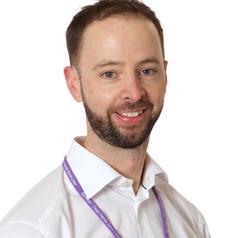
Hugh Kearney
Clinical Senior Lecturer, Clinical Medicine, Trinity College Dublin
Dr Kearney completed a PhD in University College London investigating the use of spinal cord MRI in MS and its association with disability. He completed his clinical training in neurology in Ireland, including a two-year postdoctoral fellowship in genomics with FutureNeuro. He currently works as a consultant neurologist in St James's Hospital, and is leading the newly established MS unit. He is also part of the Academic Unit of Neurology in Trinity College Dublin, and is developing a research group focused on translational research in multiple sclerosis, including the development of diagnostic biomarkers.
Less ![]()

Hugh Lippincott
Associate Professor of Physics, University of California, Santa Barbara
Hugh Lippincott has been a professor at the University of California Santa Barbara since 2019. His research focuses on the direct detection of dark matter, having worked on a variety of experiments and techniques at SNOLAB and elsewhere. Lippincott received his PhD from Yale University for work on liquid argon and neon detectors, including with the MiniCLEAN and DEAP collaborations. He was a Lederman Postdoctoral Fellow at Fermilab working on the COUPP bubble chamber experiments, before becoming a Wilson Fellow at Fermilab as a member of the PICO collaboration. Lippincott joined the LUX-ZEPLIN (LZ) experiment in 2014, for which he has served in many capacities, including as Spokesperson from 2021-2023.
Less ![]()
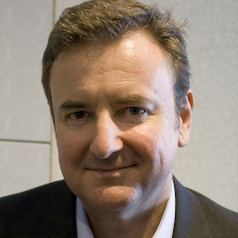
Hugh Martin
Hugh Martin is the coordinator of the Masters of Journalism Innovation program at La Trobe University.
Hugh has worked in a variety of digital editorial and publishing roles with Australia’s biggest news publishers. He was Editor of theage.com.au, Editor of News.com.au at News Corp and General Manager of APN Online, a division of APN News & Media.
He received a Walkley Award in 2004, and is a winner of two Melbourne Press Club Awards.
In 2014 he was a recipient of the Google/Walkley Foundation Grant for Innovation in Journalism.
Less ![]()
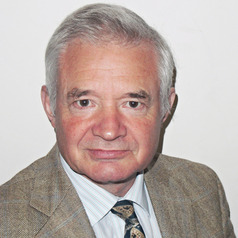
Hugh McLeod
I am a historian specialising in the religious history of the 19th and 20th century. I recently retired from my Birmingham chair, but I am still very active in research and postgraduate supervision.
As a Fellow of the Swedish Collegium for Advanced Studies at Uppsala, I was part of a group researching long-term patterns of religious change in the modern west – in particular, the differences and similarities between the religious trajectories of the US and Western Europe since the 1790s.
My latest book, Religion and the Rise of Sport in England (Oxford University Press, 2022), looks at the relationship between religion and sport as it went through phases of repulsion in the first half of the 19th century, growing attraction in the middle decades of the century, intimacy in the later 19th century, and gradual separation in the 20th century.
My earlier book, The Religious Crisis of the 1960s (OUP, 2007), analyses a time of decisive religious change throughout the western world. In many countries there was a rapid decline in church-going, and at the same time the religious options widened dramatically. The book makes extensive use of oral history in order to show how the changes were experienced by “ordinary people”.
Less ![]()

Hugh Stanford
Researcher Associate, Centre for Urban Research, RMIT University
Hugh is a Research Associate at RMIT University's Centre for Urban Research. His work centers on urban planning and urban greening, particularly the role of informal and neglected urban spaces in enhancing social and ecological outcomes. His recent research explores how urban greening can lead to improved biodiversity and human health outcomes in cities.
Less ![]()
- Market Data




















